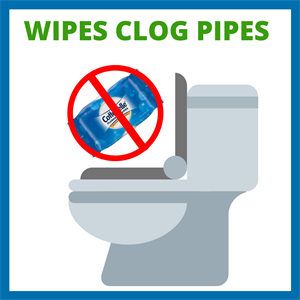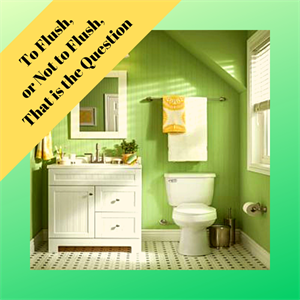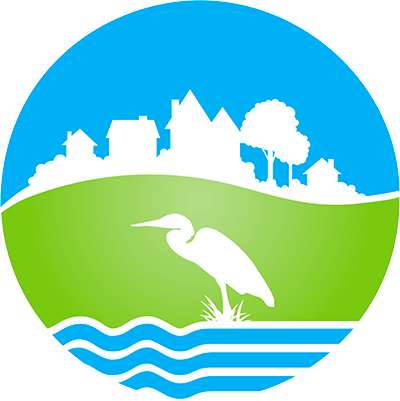Can this be flushed? If you are asking the question, then the answer is no.
We have had some questions on our trolley tours regarding what can and cannot be flushed. Now we all know this is a stinky subject, but it is important for everyone to have this information. In trying to prevent clogs, backups, and issues at the Water Reclamation Facility, we put together a list of things that should NEVER be flushed.
 Even though some products like wipes, kitty litter, and baby diapers say that they can be flushed, DO NOT flush them! These products are meant to absorb water and do not break down. The rule of thumb is the 4 ‘P’s: poop, pee, puke, and (toilet) paper. Everything else will cause issues with plumbing and can cause obstructions in the sewer system.
Even though some products like wipes, kitty litter, and baby diapers say that they can be flushed, DO NOT flush them! These products are meant to absorb water and do not break down. The rule of thumb is the 4 ‘P’s: poop, pee, puke, and (toilet) paper. Everything else will cause issues with plumbing and can cause obstructions in the sewer system.
One of the major hazards that the Water Reclamation Facility is trying to educate the public about is flushable wipes – they aren’t flushable. They do not break down, can cluster together and sometimes get tied together, and get caught in the grates at the Water Reclamation Facility causing clogs and backups.
Another concern is Fats, Oils, and Grease (FOG) from Food Service Establishments as well as home owners. Fats, Oils, and Grease stick to the sides of pipes and start to build up over time causing blockages in the system. Blockages of any kind can result in pipes bursting, backups or overflows into local waterways.
To help with disposal of things that are used in the bathroom, it is advised to have a waste basket for easy use.
To recycle used motor oil and other automotive fluids, use Earth911 to find recycling locations closest to you. You can choose which fluid you would like to recycle, and the search will give you specific places for them. Many auto parts stores will accept motor oil and others including transmission fluid, brake fluid, and antifreeze. https://earth911.com/recycling-guide/how-to-recycle-automotive-fluids/
It is also extremely important to not pour or flush medications down the drain. Water Treatment Facilities are not equipped to remove the chemicals found in medications, which equates to contaminated local water supplies. These medications also impact aquatic life when the water is returned to rivers and lakes. Not only are residents drinking this water but so are all other living things, including pets, farm animals and crops.
Unused medications can be brought to Walgreens, CVS, and RiteAid locations with disposal bins as well as a few other pharmacies. The U.S. Drug Enforcement Administration also hosts the National Prescription Drug Take-Back events that include police stations and health departments.
Another resource for recycling is the ReWorks Recycling Center, which is located in Stow. This facility has a long list of products that they recycle and are dedicated in keeping household hazardous waste out of landfills. This is a free service to Summit County residents and more information can be found on their website: http://www.summitreworks.com/
In the end, the only things that should ever be flushed is human waste and toilet paper. Everything else should be kept out of the toilet or any other drains and thrown away or recycled.
 Here is a list of items that you may not realize cannot be flushed:
Here is a list of items that you may not realize cannot be flushed:
- Cotton balls and swabs
- Sanitary napkins
- Mini or maxi pads
- Tampons and applicators
- Cleaning wipes of any kind
- Dental floss
- Disposable diapers
- Bandages or gauze
- Automotive fluids
- Paint, solvents, sealants, or thinners
- Unused medications
- Fats, Oils, Grease
- Flushable kitty litter
- Fish for a funeral
- Pet poop
- Cigarette butts
- Contact lenses
- Chemicals of any kind
By: Elizabeth Holston
